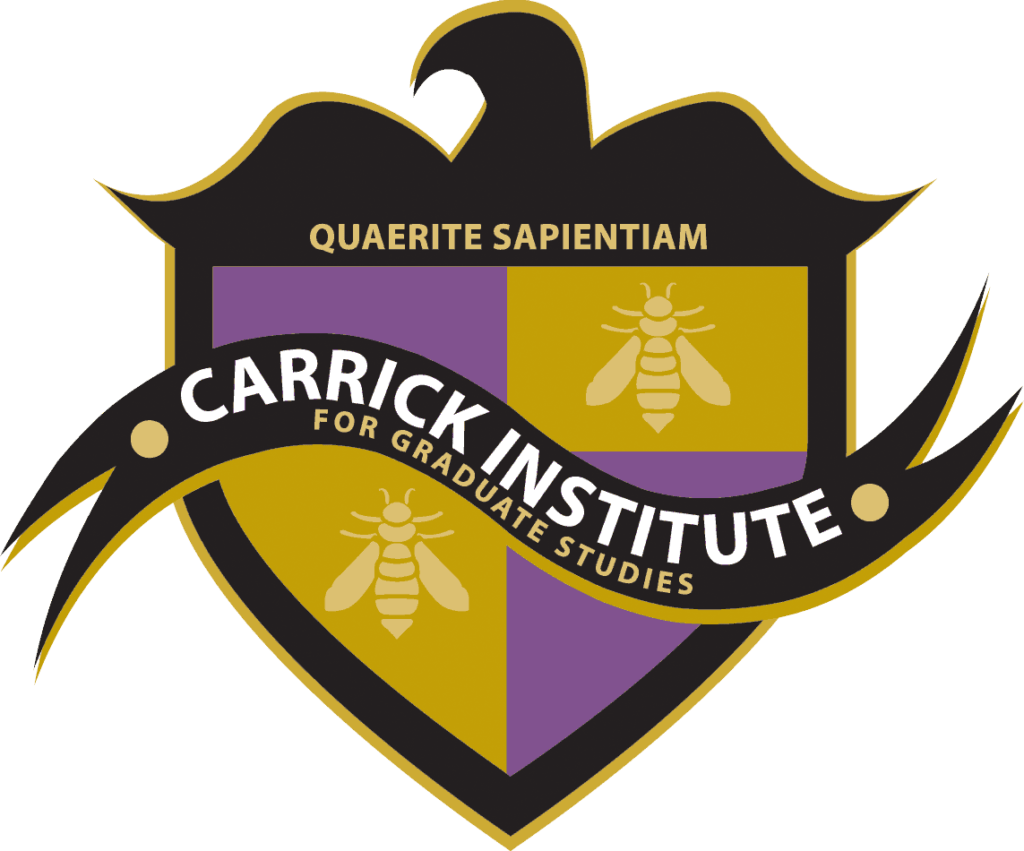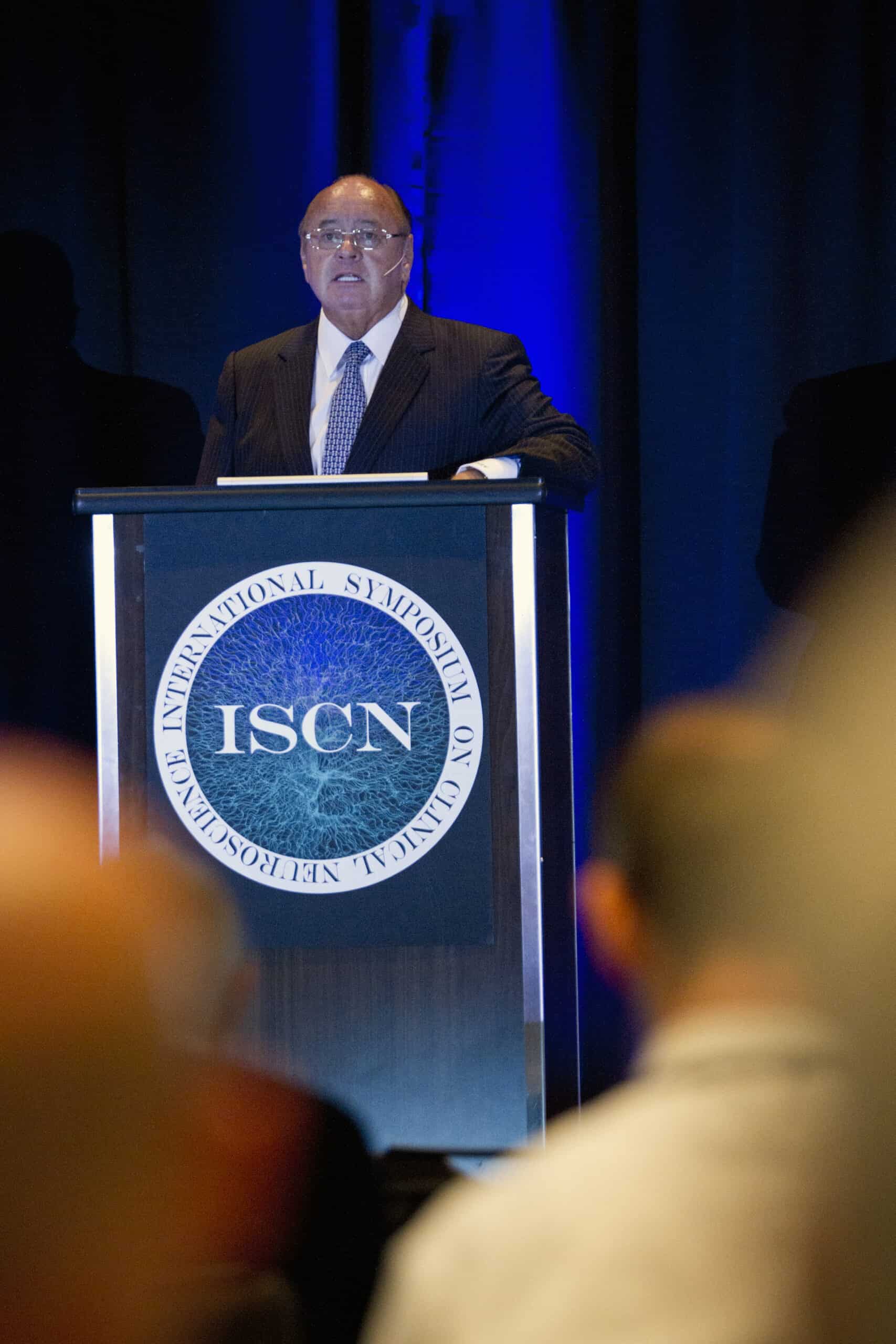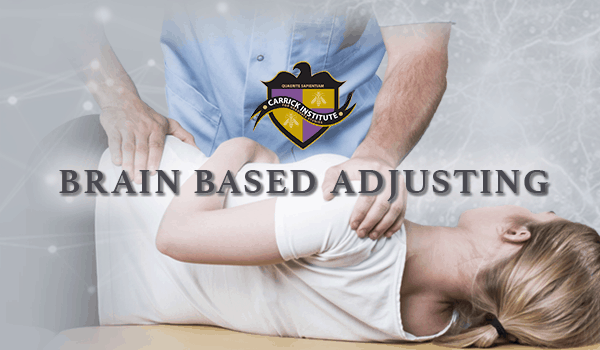Carrick Institute
Association Opportunities

Bring The Carrick Institute To You
Let’s connect on how our expertise can benefit your organization.

Clinical Excellence Through Education
For over 40 years, the Carrick Institute’s mission has been to produce the best clinicians in the world. Educate and inspire your constituents towards clinical excellence with our world-renowned faculty and presentation topics.
Why Us?
The best clinicians in the world have the capability to approach their patients with the appropriate model for each individual scenario to yield excellent clinical outcomes. Carrick Institute educational presentations create the clinicians of the future by providing a modern evidence-based multi-factorial approach to care.
Carrick Institute Presenter's

Matthew M. Antonucci
Institute Curriculum Planning Committee Member, Associate Professor of Clinical Neurology
Resume – Click Here
Video Reference – Click Here


FREDERICK ROBERT CARRICK
Professor of Clinical Neurology
Video Reference – Click Here

David Clark
Assistant Professor of Clinical Neurology
Video Reference – Click Here

Adam Harcourt
Assistant Professor of Clinical Neurology
Resume – Click Here
Video Reference – Click Here

Adam S. Klotzek
Institute Curriculum Planning Committee Member, Professor of Clinical Neurology
Resume – Click Here
Video Reference – Click Here
*More speakers are available upon request
Presentation Topics
Click on each topic to see a drop-down with the description.

Functional Neurology
![]() 1-4 hour presentation
1-4 hour presentation ![]() 1-2 Hour Webinar
1-2 Hour Webinar
In this presentation, we cover three important topics, or what we call ‘the ABCs’, within the Clinical Neuroscience realm: Autonomics, Balance and Coordination, and Cognition.This presentation serves as a great introduction to the application of clinical neuroscience for improved patient outcomes.

Chiropractic & Neurology
This hands-on introduction workshop is designed to teach you how your adjustments affect the brain and how knowing this information changes the way you adjust your patients. Various concepts of clinical neuroscience will be discussed relating to how subluxations negatively influence the brain. This is a learning by doing workshop that focuses on the examination procedures to determine where the brain is not optimal and adjusting strategies to enhance human function.
![]()
![]() . 1-2 hour presentation
. 1-2 hour presentation
Scoliosis is often regarded as one of the most difficult conditions to treat or manage successfully. Likely due to the poor understanding of its cause and contributing factors. Recent literature has focused on vestibular dysfunction as being a primary contributing factor. In this webinar, you will learn how vestibular function contributes to spinal alignment and how its dysfunction promotes scoliosis.
![]() 2-4 hour presentation
2-4 hour presentation ![]() 2-4 Hour Webinar
2-4 Hour Webinar
Each year millions of concussions occur and many are walking into Chiropractic offices reporting symptoms that could be attribute to whiplash. Many of these injuries especially in motor vehicle accidents are concussions. The focus will be on Chiropractic management and treatment with a focus on neuroanatomy, neurophysiology, evaluation, and management using both a rehabilitative and nutraceutical approach without having to be an expert in functional neurology.

Concussion & Neurology
This hands-on workshop introduces chiropractic physicians to the tools, examination procedures, and clinical applications they need to help those suffering from concussion. Effectively treating concussion patients is not as simple as just adjusting them. Learn the basics of what to know when evaluating
a concussion patient and the basics of how this information influences your adjustments and other treatment approaches.
With over 30 official “unified” definitions, no published standard approach to diagnosis or rehabilitation, concussions are confusing everyone. Meanwhile, best estimates suggest that in any particular year, 1 in 10 people will sustain a concussion. Due to a lack of public education causing underreporting, a precise definition, standard of care, and inadequate data collection, the actual number of concussions that occur each year may never be discovered.
This 1-day, hands-on, high-level and fast-paced workshop will teach the delegate the 7 major profiles or phenotypes of concussion, how to assess each, understand the pathology associated with each, then craft customized training exercises to rehabilitate or enhance neurological function in patients from pediatrics to geriatrics, and professional athletes.
A common symptom that patients who have sustained a concussion describe is the sensation of, “I don’t feel like myself,” or “I don’t know how to explain it, but I just don’t feel right.” This very vague symptom presents challenges for both patients and doctors alike. How do you treat someone that just “doesn’t feel like themself?”
In this virtual presentation, Dr. Antonucci will discuss the bases of self-perception, how concussions can affect that perception, how a clinician might measure a patient’s ability to perceive themself accurately, and most importantly… how to use the power of plasticity to restore their self-identity.
Concussions are complex injuries requiring extensive training and specialty consultation. They are occurring in the general population at staggering incidence rates – more than diabetes and more cancer diagnoses. Chiropractors have a unique position in the healthcare system, with established patient relationships and more frequent interactions, allowing them to be a pivotal steward of brain health and safety. However, research has demonstrated that knowledge among ALL healthcare providers is deficient in identifying and managing mTBI. While many individuals don’t know if they were concussed or the magnitude that their injury may have on their life, this 4-hour, fast-paced course will aid its attendees in making solid recommendations by covering the breadth of concussion, from acute/sideline management, sub-acute therapeutics, and the 7 subtypes of concussion. Our goal is to enable chiropractors to properly manage or refer patients with concussions, to reduce long-term suffering and promote brain health.

Pain & Neurology
![]() 1-4 hour presentation
1-4 hour presentation ![]() 1-2 Hour Webinar
1-2 Hour Webinar
This presentation has been developed with the objective of introducing chiropractors to the latest in pain neuroscience for the purpose of improving clinical outcomes regardless of one’s practice technique. By learning to understand how our nervous system processes and blocks pain we gain knowledge of what to do when our techniques fail.
![]()
![]() . 1-2 hour presentation
. 1-2 hour presentation
The ability to coordinate head and eye movements in gaze is a critical function often overlooked in patients with neck pain. To perform this task accurately and smoothly, your brain must integrate information from the visual, vestibular, and proprioceptive systems. Deficits in the visual system are commonly seen in individuals with neck pain. In this webinar, you will learn two simple ways to determine if visual system impairment contributes to your patient’s neck pain and how to treat it.
![]()
![]() . 1-2 hour presentation
. 1-2 hour presentation
Low back pain and poor posture often coexist. The poor posture seen in lower back pain is thought to stem from impaired proprioception in the lower back and other spinal areas. Often overlooked by clinicians is the contribution of the vestibular system to the poor posture observed in low back pain. This webinar will teach you the connection between the vestibular system, poor posture, and low back pain. You will also learn simple exam procedures to identify if the vestibular system contributes to your patient’s lower back pain and how to treat it.
![]()
![]() . 1-2 hour presentation
. 1-2 hour presentation
Our understanding of the neurology of chronic pain has advanced significantly over the past few decades. It is well known that Fibromyalgia, a chronic pain syndrome, is associated with significant changes in brain connectivity and function of the neural networks involved in processing and modulating pain. Clinicians often overlook the contribution of brain dysfunction in Fibromyalgia or realize it exists but are unsure of how to treat it. In this webinar, you will learn about some of the brain changes that occur in Fibromyalgia, how they contribute to the chronicity of Fibromyalgia, and how to address them.

Pediatric & Neurology

Migraine & Neurology
![]() 1-4 hour presentation
1-4 hour presentation ![]() 1-2 Hour Webinar
1-2 Hour Webinar
Migraine is quickly becoming the most common cause of disability in the world, lagging only behind low back pain. Learn the pathophysiology of why migraine is different from other types of head pain and why neuroscience-trained clinicians are positioned to be the best primary care doctor for this condition. We will discuss musculoskeletal, neurological, nutritional, and hormonal considerations that can reduce or eliminate this debilitating condition.
![]()
![]() . 1-2 hour presentation
. 1-2 hour presentation
The involvement of the vagus nerve and its central nuclei is often overlooked as a contributing factor in migraineurs. Current research is revealing a high prevalence of vagal nerve dysfunction in migraineurs and positive outcomes in migraineurs using vagal nerve stimulation. In this webinar, you will learn how vagal nerve dysfunction contributes to migraines and how vagal nerve stimulation can treat them effectively.

Nutrition & Neurology
![]() 1-4 hour presentation
1-4 hour presentation ![]() 1-2 Hour Webinar
1-2 Hour Webinar
A one-day class to introduce students in chiropractic college to the foundational concepts of Clinical Neurochemistry and Nutrition. Learners will be presented with the four Neurochemistry metabolic priorities: autoimmunity, energy production, HPA tone/glucose handling, and Gastrointestinal/Liver. Learners will be exposed to the clinical problem-solving methodology necessary to successfully apply Clinical Neurochemistry and Nutrition to a diverse patient population.
.

Neurochemistry and Nutrition
![]() 1-4 hour presentation
1-4 hour presentation ![]() 1-2 Hour Webinar
1-2 Hour Webinar
A one-day class to introduce students in chiropractic college to the foundational concepts of Clinical Neurochemistry and Nutrition. Learners will be presented with the four Neurochemistry metabolic priorities: autoimmunity, energy production, HPA tone/glucose handling, and Gastrointestinal/Liver. Learners will be exposed to the clinical problem-solving methodology necessary to successfully apply Clinical Neurochemistry and Nutrition to a diverse patient population.
![]() 2-4 hour presentation
2-4 hour presentation ![]() 2-4 Hour Webinar
2-4 Hour Webinar
This introduction workshop is on the detrimental effects of a traumatic brain injury on the gut-brain axis. It is designed to teach you what happens, how to evaluate, and what steps to restore balance. The focus will be on anatomical, immune, and physiological changes occur following a brain injury and how this impacts the gut-brain axis.
![]() 1-2 hour presentation
1-2 hour presentation ![]() 1-2 Hour Webinar
1-2 Hour Webinar
Childhood trauma, ptsd, and ongoing stressors throughout life are a culprit in nearly any disease or symptom process including autoimmunity, hypertension, diabetes, chronic headaches, and chronic pain. We will discuss the neuroimmunology, neurobiology, and anatomy of stress. We will discuss how to address it using non-pharmacological methods including nutraceuticals, mindfulness, and exercise.

Neurochemistry and Nutrition
![]() 1-4 hour presentation
1-4 hour presentation ![]() 1-2 Hour Webinar
1-2 Hour Webinar
A one-day class to introduce students in chiropractic college to the foundational concepts of Clinical Neurochemistry and Nutrition. Learners will be presented with the four Neurochemistry metabolic priorities: autoimmunity, energy production, HPA tone/glucose handling, and Gastrointestinal/Liver. Learners will be exposed to the clinical problem-solving methodology necessary to successfully apply Clinical Neurochemistry and Nutrition to a diverse patient population.
![]() 2-4 hour presentation
2-4 hour presentation ![]() 2-4 Hour Webinar
2-4 Hour Webinar
This introduction workshop is on the detrimental effects of a traumatic brain injury on the gut-brain axis. It is designed to teach you what happens, how to evaluate, and what steps to restore balance. The focus will be on anatomical, immune, and physiological changes occur following a brain injury and how this impacts the gut-brain axis.
![]() 1-2 hour presentation
1-2 hour presentation ![]() 1-2 Hour Webinar
1-2 Hour Webinar
Childhood trauma, ptsd, and ongoing stressors throughout life are a culprit in nearly any disease or symptom process including autoimmunity, hypertension, diabetes, chronic headaches, and chronic pain. We will discuss the neuroimmunology, neurobiology, and anatomy of stress. We will discuss how to address it using non-pharmacological methods including nutraceuticals, mindfulness, and exercise.
Speaker Topics
There are over 40+ Carrick Institute faculty members worldwide. Let us know if there are other topics you’d like to bring to your association. Our speakers are available as panelist, general sessions and breakout sessions.
- Functional Neurology
- Chiropractic & Neurology
- Concussion & Neurology
- Pain & Neurology
- Functional Neurology
- Chiropractic & Neurology
- Concussion & Neurology
- Pain & Neurology
- Pediatric & Neurology
- Migraine & Neurology
- Nutrition & Neurology
- Vestibular & Neurology
- Pediatric & Neurology
- Migraine & Neurology
- Nutrition & Neurology
- Vestibular & Neurology

American Chiropractic Association
Learn More About The ACA at Acatoday.org
You may contact memberinfo@acatoday.org for information regarding the American Chiropractic Association.
State Association Co-Sponsor's
Join the FCA: Click Here
To Learn More: Click Here
To Contact the FCA: Click Here
Join the CCA: Click Here
To Learn More: Click Here
To Contact the CCA: Click Here
Join the OSCA: Click Here
To Learn More: Click Here
To Contact the OSCA: Click Here
Join the TCA: Click Here
To Learn More: Click Here
To Contact the TCA: Click Here
Join the OCA: Click Here
To Learn More: Click Here
To Contact the FCA: Click Here
Join the UVCA: Click Here
To Learn More: Click Here
To Contact the UVCA: Click Here
Join the PCA: Click Here
To Learn More: Click Here
To Contact the PCA: Click Here
Join the NCCA: Click Here
To Learn More: Click Here
To Contact the NCCA: Click Here
The Carrick Advantage
The Carrick Institute creates and delivers a truly distinctive clinical neuroscience program and clinical neuroscience support services that develop:
- High Performance Leadership—An ability to confidently lead oneself and others for sustainable high performance.
- Global Effectiveness—An ability to perform effectively across cultures in addressing critical clinical neuroscience technology challenges.
- Clinical neuroscience mastery—An ability to enhance personal and organizational performance through the study of clinical neurological technology.
- An Innovative Mindset—An ability to think and act creatively in the field of clinical neuroscience technology.
- Clinical Neuroscience Expertise—An ability to contribute strategically through highly developed functional clinical neuroscience technology skills.
- Professional Curriculum—An ability to learn from academic and educational principles based upon and sensitive to clinical neuroscience technology needs.
- Professional Faculty—An ability to work with academic and research clinical neurologists, as well as working with practicing professional working clinical neurologists.
- Educational Exchange—An ability to work with other professional clinical neurologists with opportunities for international educational exchange.










